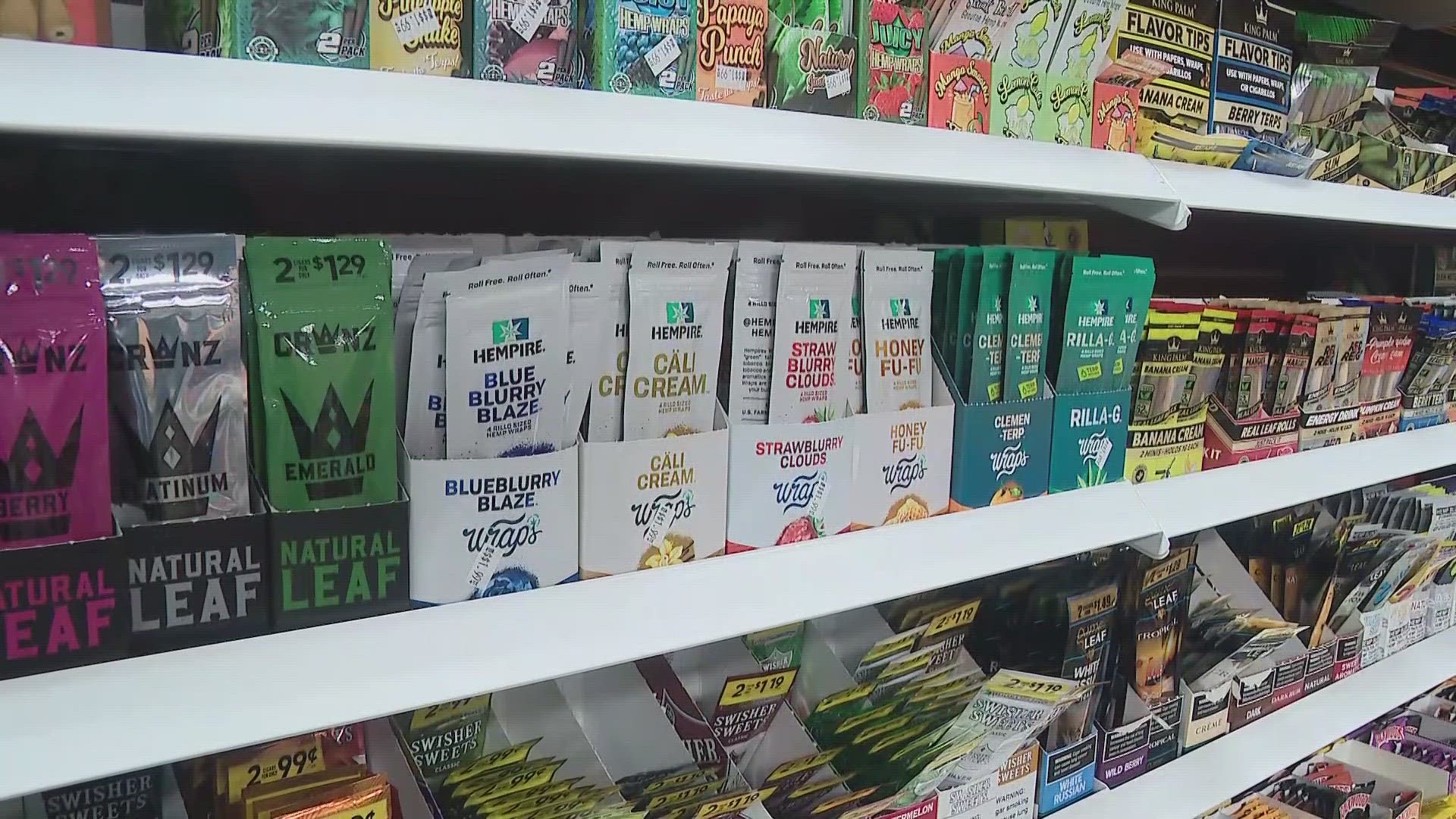PENNSYLVANIA, USA — The American Lung Association revealed that Pennsylvania is—once again—coming up short in regulating tobacco products.
Pennsylvania received a failing grade in this year's "State of Tobacco Control" report—for the seventh year in a row.
The American Lung Association released the 22nd annual report at midnight on Jan. 24. The Commonwealth received an F when it comes to tobacco prevention and control program funding. The state also ranked low in several other areas.
Here's a breakdown of down the numbers.
The annual "State of Tobacco Control" report grades states on an A through F scale based on the state and federal policies best-proven to prevent and reduce tobacco use.
It examines tobacco prevention and cessation funding, smoke-free air policies, tobacco taxes, access to cessation services and the regulation of flavored tobacco products.
For 2024, the Commonwealth is allocating $16 million in funding for tobacco control programs; however, the Centers for Disease Control and Prevention recommends that number should be around $140 million dollars.
The recommendation takes into consideration the $1.5 billion in tobacco-related revenue the state generates. So, the ALA scores Pennsylvania an F here.
“Tobacco use is the leading cause of death in Pennsylvania and across the country and takes the lives of 22,010 state residents each year. The tobacco industry will do anything to protect their profits at the expense of Pennsylvania lives, so we must push forward in our efforts to prevent and reduce tobacco use,” said Aimee Van Cleave, director of advocacy at the ALA in Pennsylvania. “This year, we are working with state policymakers to focus on closing the loopholes in the Clean Indoor Act to prohibit smoking in all workplaces, including bars and casinos and expanding state funding for tobacco control programs.”
When it comes to state smoking restrictions, Pennsylvania has many buildings that prohibit smoking.
However, the lack of regulation at bars, casinos and restaurants is why the Lung Association gave the Keystone State a D grade in its smoke-free air policy.
Currently, there is a $2.60 tax for a pack of 20 cigarettes, which is above the current national average of $1.91.
But consider how these taxes in states with the highest grades are well above $3, add in a lack of a tax on e-cigarettes, and that's how Pennsylvania wound up with a failing grade in this category.
The system that grades access to services to help people quit tobacco looks at state Medicaid coverage and state employee insurance plans that cover tobacco cessation treatments. It also looks at the investment per smoker into tobacco cessation counseling.
While the report shows Medicaid and state health care plans cover most care and have minimal barriers to coverage, the American Lung Association found that Pennsylvania spends $1.51 per smoker, while the median investment per smoker is $1.93. This disparity gave Pennsylvania a D in this category.
Finally, with no state law or regulation on flavored tobacco products, Pennsylvania fails in that category.
There are three things the report suggests to help the Keystone State improve its grade:
- Preserve state funding for wide-ranging tobacco prevention and control programs
- Close loopholes in the state's Clean Indoor Air Act
- End the sale of all flavored tobacco products, including menthol
To read more about the report, including how the federal government scored, click here.

